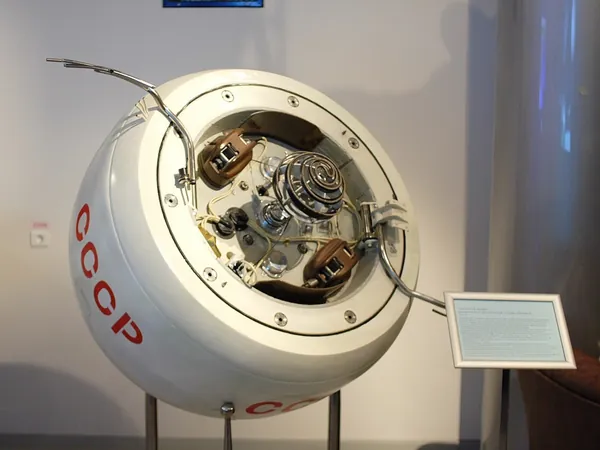
Soviet Spacecraft Crashes to Earth After 53 Years of Orbit: What You Need to Know!
2025-05-11
Author: Jacob
A Historic Plunge from the Cosmos
In a dramatic turn of events, a long-forgotten Soviet spacecraft made its fiery descent back to Earth on Saturday, more than fifty years after a failed mission to Venus. The spacecraft, dubbed Kosmos 482, caught the attention of scientists and space enthusiasts alike as its uncontrolled reentry unfolded.
Where Did It Land?
As per reports from the Russian Space Agency and the European Union Space Surveillance, the spacecraft reportedly crashed into the Indian Ocean. However, the exact location remains a mystery as experts were unable to pinpoint the drop zone with certainty.
The Legacy of Kosmos 482
Launched in 1972, Kosmos 482 was part of a Soviet initiative to explore Venus but was abruptly halted due to a rocket failure that left it stranded in Earth’s orbit. After decades of circling the planet, its descent was eagerly watched by space agencies and researchers.
What Survived the Fall?
Despite initial concerns that debris from the spacecraft could hit the ground, experts reassured that the odds of anyone being struck by falling remnants were extremely low. Observations suggested that the durable craft, encased in titanium and weighing around 1,000 pounds, could have withstood much of the intense heat from reentry.
A Curious Ending
As scientists tracked the spacecraft's trajectory, they faced challenges due to unpredictable solar activity and the spacecraft's degraded condition over time. Disappointment hung in the air as many anticipated a spectacle, with Dutch scientist Marco Langbroek quipping, "If it was over the Indian Ocean, only the whales saw it!"
Salvage Rights and Future Monitoring
Under United Nations treaties, any surviving wreckage from Kosmos 482 legally belongs to Russia. The U.S. Space Command, which routinely monitors dozens of satellite reentries every month, has yet to confirm the spacecraft's demise, continuing to collect and analyze orbital data.
A Reminder of Space's Unpredictability
The uncontrolled reentry of Kosmos 482 serves as a stark reminder of the unpredictability of space travel and the legacy of Cold War-era space missions. As policymakers and scientists continue to innovate in space exploration, incidents like this highlight the importance of monitoring space debris and its potential impacts.









 Brasil (PT)
Brasil (PT)
 Canada (EN)
Canada (EN)
 Chile (ES)
Chile (ES)
 Česko (CS)
Česko (CS)
 대한민국 (KO)
대한민국 (KO)
 España (ES)
España (ES)
 France (FR)
France (FR)
 Hong Kong (EN)
Hong Kong (EN)
 Italia (IT)
Italia (IT)
 日本 (JA)
日本 (JA)
 Magyarország (HU)
Magyarország (HU)
 Norge (NO)
Norge (NO)
 Polska (PL)
Polska (PL)
 Schweiz (DE)
Schweiz (DE)
 Singapore (EN)
Singapore (EN)
 Sverige (SV)
Sverige (SV)
 Suomi (FI)
Suomi (FI)
 Türkiye (TR)
Türkiye (TR)
 الإمارات العربية المتحدة (AR)
الإمارات العربية المتحدة (AR)